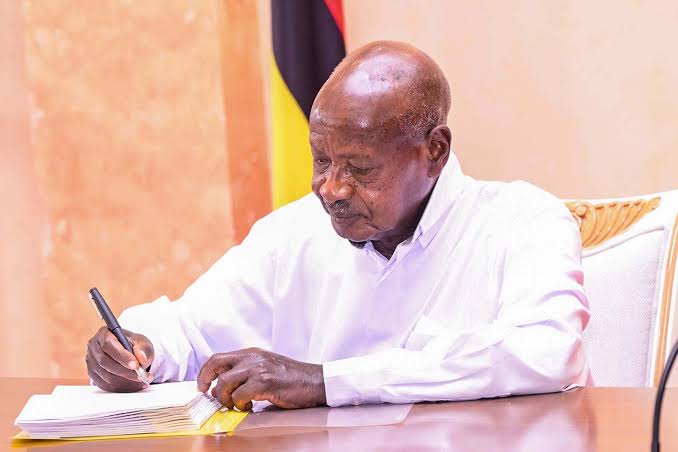President Yoweri Museveni has signed into law the Uganda Peoples’ Defence Forces (Amendment) Act, 2025, reintroducing provisions that allow civilians to be tried in military courts under undefined “exceptional circumstances”.
The announcement was made Monday, June 16, via Uganda Parliament’s official X (formerly Twitter) handle, confirming that the president had assented to the bill undoing a January 31 Supreme Court ruling that outlawed the military prosecution of civilians.
The law, passed on May 20, had its fair share of controversy. There were dramatic opposition walkouts and military deployment, reinstated controversial clauses previously deemed unconstitutional. It does not explicitly define what constitutes “exceptional circumstances” under which civilians can now face court martial proceedings.
While opposition MPs stormed out of the session in protest over what they called a rushed and authoritarian process, 197 ruling NRM legislators pushed the bill through, unanimously voting for all its clauses without amendment.
Addressing the public hours after the Bill was passed, President Museveni praised Parliament, particularly NRM MPs and what he termed “friendly opposition”, for averting what he described as a looming institutional crisis between the army, legislature, and judiciary
“I want to congratulate the Members of Parliament for passing the UPDF Amendment Bill,” Museveni said last month. “There was going to be a serious problem because some people were saying if a soldier commits a crime like killing, theft, or rape, they should be taken to civilian courts instead of the court martial. That was going to cause a serious collision between the army, Parliament, and the courts of law. They have saved us the embarrassment.”
However, critics argue the new law violates constitutional safeguards for civilian justice and flies in the face of judicial independence. Legal scholars, civil society, and human rights defenders have warned that this sets a dangerous precedent, undermining the Supreme Court’s authority and reopening the door for politically motivated trials.
Human rights groups argue that the legislation erodes civilian protections and enables impunity within security agencies.
Parliament has also yet to clarify vague sections in the law, including what qualifies as military attire and under what legal thresholds civilians may now be tried in military courts.


